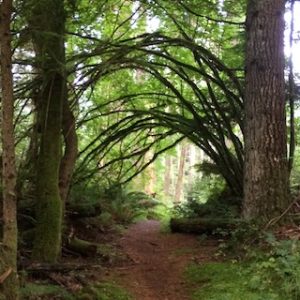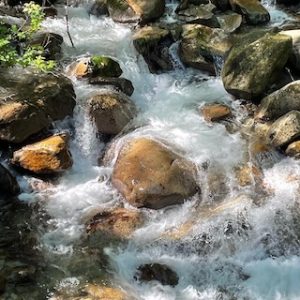 The Columbia City Yoga on-line Moving into Meditation class met this morning. We reflected on the different causes for wisdom to arise. It can develop by bringing mindfulness to our inner lives and by deeply engaging with others. Both touch on an essential vulnerability that David Whyte describes as “that first vulnerability of being found, of being heard and of being seen.” Our own careful attention and input from others can be causes for wisdom.
The Columbia City Yoga on-line Moving into Meditation class met this morning. We reflected on the different causes for wisdom to arise. It can develop by bringing mindfulness to our inner lives and by deeply engaging with others. Both touch on an essential vulnerability that David Whyte describes as “that first vulnerability of being found, of being heard and of being seen.” Our own careful attention and input from others can be causes for wisdom.
We continued to draw from Oren Jay Sofer’s book: Your Heart Was Made for This: Contemplative Practices for Meeting a World in Crisis with Courage, Integrity, and Love. Oren writes: “Wisdom understands . . . how suffering arises and ceases. . . . it understands the natural laws of the heart and world and sensing what’s needed, expresses itself as compassionate engagement.”
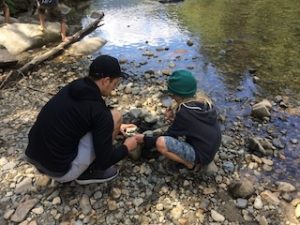 We heard David Brooks’ thoughts on wisdom. David writes about how to be a wise person in the ending chapter of How to Know a Person the Art of Seeing Others Deeply and Being Deeply Seen. He values the wisdom we develop and practice in relationship. A wise person “looks with the eyes of compassion and understanding, will see complex souls, suffering and soaring, navigating life as best they can. . . . [A wise person will] give those around around them the sense that they are right there with them . . . sharing what they are going through. , , , {They] will maintain this capacious loving attention even as the callousness of the world rises around them.”
We heard David Brooks’ thoughts on wisdom. David writes about how to be a wise person in the ending chapter of How to Know a Person the Art of Seeing Others Deeply and Being Deeply Seen. He values the wisdom we develop and practice in relationship. A wise person “looks with the eyes of compassion and understanding, will see complex souls, suffering and soaring, navigating life as best they can. . . . [A wise person will] give those around around them the sense that they are right there with them . . . sharing what they are going through. , , , {They] will maintain this capacious loving attention even as the callousness of the world rises around them.”
We heard David Whyte’s poem, A Seeming Stillness. The poem can be found in the Essentials collection published in 2020.
Thank you for being here. Last week we explored concentration as “just and loving attention.” We aspired to extend this quality of attention from our “grandmother’s heart” and to see ourselves and others with “grandmother’s eyes.” Today we’ll explore the contemplative practice of turning just and loving attention inward to develop wisdom. In his chapter on wisdom, Oren Jay Sofer explores how wisdom springs from bringing awareness to both our inner and outer domains of being. He writes:
Mindfulness connects to life and creates the space to relate differently; wisdom senses what’s needed. . . . our own careful attention and input from others.. . . . The Buddha mentioned two causes for the arising of wisdom: our own careful attention and input from others. We need feedback to accurately see our conditioning and actions at all levels.
Sitting with my personal experience, engaging in relationships and learning new ideas have helped me to learn truths about myself and the human and more than human world. I cherish the dear friends I can tell my troubles to. They’ve helped me to consider ways of relating differently. I cherish the many teachers whose wisdom has challenged me to open my heart and mind. I invite you to take a moment to reflect on the sources of wisdom in your life.
I appreciate David Brooks’ discussion about what it means to be a wise person. In his book, How to Know a Person, he writes:
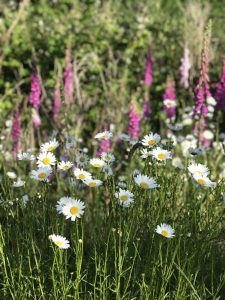 . . . wisdom is not mostly a trait possessed by an individual. Wisdom is a social skill practiced within a relationship or a system of relationships. Wisdom is practiced when people come together to form what Parker Palmer called a “community of truth.” . . . A community of truth is created when people are genuinely interested in seeing and exploring together. . . . When we are in a community of truth, we’re trying on each other’s perspectives. . . . There are magical moments . . . when people talk deeply with crystalline honesty and respect.
. . . wisdom is not mostly a trait possessed by an individual. Wisdom is a social skill practiced within a relationship or a system of relationships. Wisdom is practiced when people come together to form what Parker Palmer called a “community of truth.” . . . A community of truth is created when people are genuinely interested in seeing and exploring together. . . . When we are in a community of truth, we’re trying on each other’s perspectives. . . . There are magical moments . . . when people talk deeply with crystalline honesty and respect.
In our circles of practice and sociality I find a community of truth. In these circles we apply the two causes for the arising of wisdom: our own careful attention and input from others. I think David Whyte’s poem, A Seeming Stillness, speaks to these two streams of awareness inviting wisdom:
Breathe then, as if breathing for the first time,
as if remembering with what difficulty
you came into the world, what strength it took
to make that first impossible in-breath,
into a cry to be heard by the world.
Your essence has always been
that first vulnerability of being found,
of being heard and of being seen,
and from the very beginning,
the one who has always needed,
and been given, so much invisible help.
This is how you were when you first came
into the world, this how you were when you took your
first breath in this world, this is how you are now,
all unawares, in your new body and your new life,
this is the raw vulnerability of your
every day, and this is how you will want to be,
and be remembered, when you leave the world.
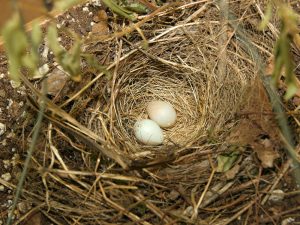 “Our essence has always been that first vulnerability of being found, of being heard and of being seen, and from the very beginning, the one who has always needed, and been given, so much invisible help.” Let’s accept the invisible help that makes our practice possible today.
“Our essence has always been that first vulnerability of being found, of being heard and of being seen, and from the very beginning, the one who has always needed, and been given, so much invisible help.” Let’s accept the invisible help that makes our practice possible today.
I invite you to find a posture that enables you to feel grounded and supported. To begin, tune into the direct experience of gravity, gently holding you to Earth. With a comforting weight. Can you feel it? Just enough to hold you together. See if you can accept this invisible help. Feel Earth beneath you. Feel Earth inside you. Earth abiding and alive.
Let us “. . . breathe then, as if breathing for the first time. . . “ Let the breath come to you. Feel your body breathing. Receiving the incoming and releasing the outgoing breath. How is it to be in relationship with the world? How is it to take world in and then give it back out again?
As you hear my voice you may also be aware of everyone present today. We can sense each other’s presence. Each of us brings our heart and mind to create this circle. Our time together can be wisdom’s cause. I invite you to take a few moments to reflect on wisdom’s causes. Notice what arises, you might even name it. Notice what is true for you.
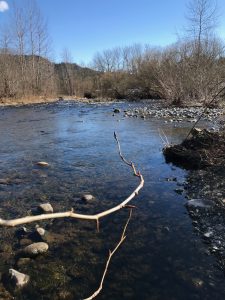 I invite you to explore Body’s language of sensation. Notice where awareness is drawn. “ . . . this is the raw vulnerability of your every day.” Body isn’t always a comfortable place to be. And yet Body is a cause for wisdom. What is true for you right now? How do you relate to Body’s fluid nature? How do you relate to Body’s abiding nature?
I invite you to explore Body’s language of sensation. Notice where awareness is drawn. “ . . . this is the raw vulnerability of your every day.” Body isn’t always a comfortable place to be. And yet Body is a cause for wisdom. What is true for you right now? How do you relate to Body’s fluid nature? How do you relate to Body’s abiding nature?
In the course of feeling body breathing there may be a sense of being in the stream of time. Thoughts and emotions may surface, naturally expressing mind. You can notice how you are relating to what is surfacing and how you can continue to feel body breathing, feeling and being alive. The world enters us and departs, just as language and image and idea are imprinted on consciousness, considered, forgotten, passed on, released.
Sitting with what is true, moment by moment . . . a cause for wisdom. Oren writes:
Wisdom understands . . . how suffering arises and ceases. . . . it understands the natural laws of the heart and world and sensing what’s needed, expresses itself as compassionate engagement.
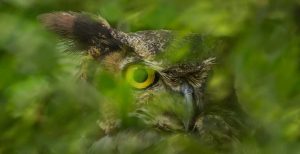 As we explore this aliveness we might experience more expansive awareness. Here we are traveling the uncertain ground of being together. Our essence in that first vulnerability of being found, of being heard and of being seen. And here, freely given, so much invisible help. Our very presence a cause for wisdom. We are constellations of aliveness enlivened and sustained by love.
As we explore this aliveness we might experience more expansive awareness. Here we are traveling the uncertain ground of being together. Our essence in that first vulnerability of being found, of being heard and of being seen. And here, freely given, so much invisible help. Our very presence a cause for wisdom. We are constellations of aliveness enlivened and sustained by love.

